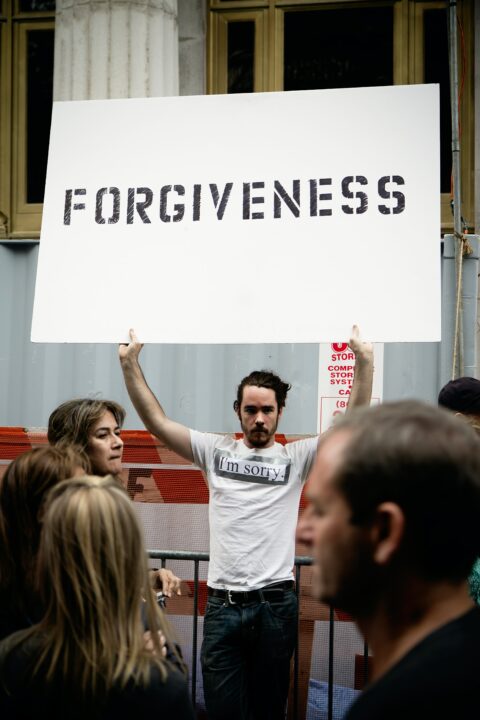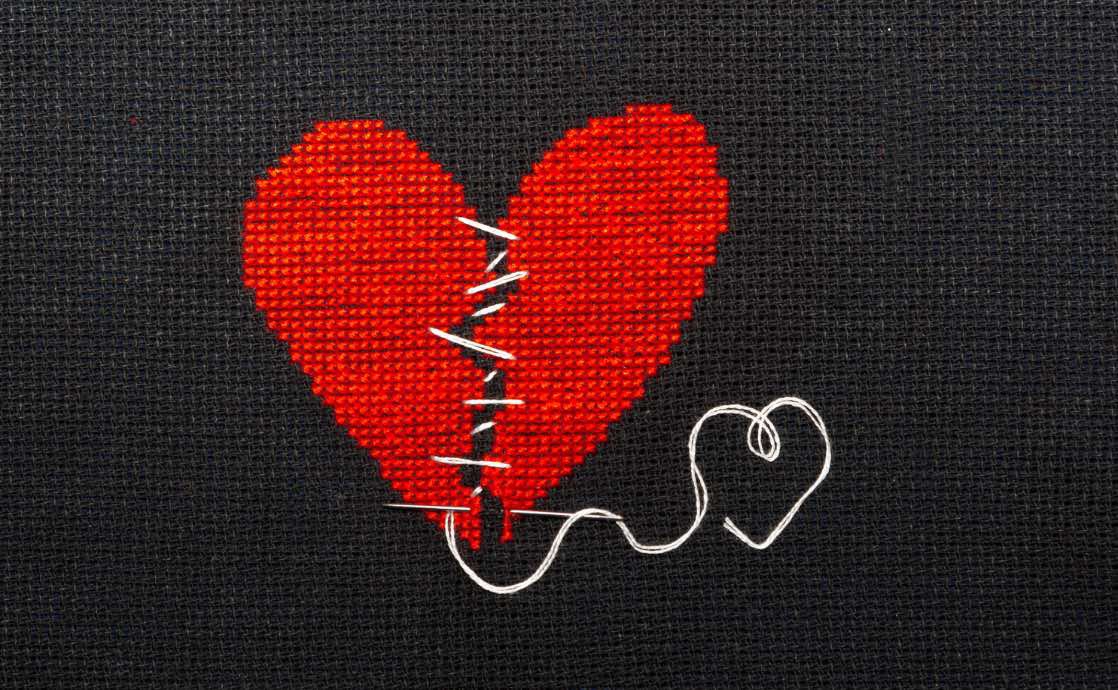The views expressed in our content reflect individual perspectives and do not represent the authoritative views of the Baha'i Faith.
When you’re the victim of an injustice, it’s easy to want to distance yourself from the person who did you wrong. Sometimes there is a good reason to do so – but sometimes it’s an opportunity to exercise our forgiveness muscle.
The teachings of every religion tell us that God wants us to live peacefully with all people. Easier said than done!
If something happens to us which we feel is unforgiveable, it can lead to estrangement and as Baha’u’llah, founder of the Baha’i Faith, wrote: “Nothing whatsoever can, in this Day, inflict a greater harm upon this Cause than … estrangement … among the loved ones of God.”
RELATED: What Does ‘Unity’ Really Mean?
This quote goes on to tell us what to do if we notice ourselves falling into this trap (as I am, as I process this in real time!) What follows is a personal reflection on how to apply the Baha’i writings to a rather minor situation in the present.
Someone close to me promised to do something I asked him to do, and nearly two weeks have passed and he still hasn’t done it. Every day I look for evidence that he’s done it, and every day I imagine a counter-action I could take as a result of my disappointment and the growing resentment I feel. At the end of the quote above, Baha’u’llah gave me a better way:
Flee them, through the power of God and His sovereign aid, and strive ye to knit together the hearts of men, in His Name, the Unifier, the All-Knowing, the All-Wise.

From this quote, I understand that my job is to turn away – to flee – from my first reaction; and trust that in doing so, the power of God’s aid will help me.
But how do I “knit our hearts together” when he is three hours away and doesn’t return phone calls or answer emails? By thinking that way, I realize I’m trying to take control instead of giving it to God. I can’t make him do anything he doesn’t want me to do, but do I trust that God will – and if so, how would my actions be different?
One way is to put aside what’s happened in the past. Sure, he doesn’t answer calls and emails nearly as often as I’d like, but he sometimes does. If I assume from past behavior that he won’t answer this time, I’m planting the seeds of estrangement and moving away from love and trust in the Unifier, the All-Knowing, the All-Wise. God knows what’s preventing my friend from doing what he said he’d do, and in the same way God is giving me tests designed for my spiritual growth. So if this person did what he said he’d do when he said he would do it, I wouldn’t have a chance to stretch my “loving, forgiving, trusting and patience” wings or to prove to God that I trust Him.
But let’s also look at what else might be going on. We can learn a lot about what Abdu’l-Baha, the son of Baha’u’llah and the Perfect Exemplar for each Baha’i, says about “war” when we expand our understanding of this word to include the internal war raging within. He said:
When all mankind shall receive the same opportunity of education and the equality of men and women be realized, the foundations of war will be utterly destroyed. Without equality this will be impossible because all differences and distinction are conducive to discord and strife. Equality between men and women is conducive to the abolition of warfare for the reason that women will never be willing to sanction it. Mothers will not give their sons as sacrifices upon the battlefield after twenty years of anxiety and loving devotion in rearing them from infancy, no matter what cause they are called upon to defend. There is no doubt that when women obtain equality of rights, war will entirely cease among mankind.
So I ask myself: how might equality be playing a part in this problem between this person and I? First of all, I didn’t have the benefit of this kind of gender equality demonstrated in my childhood, so I didn’t grow up knowing that everyone in a family has rights, as described by Abdu’l-Baha:
The integrity of the family bond must be constantly considered and the rights of the individual members must not be transgressed. The rights of the son, the father, the mother – none of them must be transgressed, none of them must be arbitrary. Just as the son has certain obligations to his father, the father, likewise, has certain obligations to his son. The mother, the sister and other members of the household have their certain prerogatives. All these rights and prerogatives must be conserved.
RELATED: Watching My Tongue to Make the World a Better Place
Because of this, I sometimes don’t know how to set good limits, or consult properly, or even how to not to take offense. So whenever something happens to trigger a certain response, or push my buttons, I can react out of fear, allowing thoughts such as these to emerge from my lower nature and then cause me to dwell on them:
- He doesn’t love me
- He doesn’t have any respect for my needs and wishes
- He promises things he has no intention of fulfilling
- He isn’t listening to me
- He’s treating me the way I was treated as a child
- I ask too much of him
- He doesn’t want my help
With these thoughts, I’m focused on “plowing his field” instead of plowing my own. If I was, I would first focus on equality and consider how I would handle the situation differently if there wasn’t a power imbalance between us. I might think such thoughts as:
- He’s proven to me over and over that he loves me
- He’s said he would do it, so I can give him the time and space to do it
- There might be factors going on in his life of which I have no knowledge
- My relationship with him is not the same as my relationship with my parents
- He’s still young and self-absorbed, so it isn’t a personal attack
Changing my train of thought to these kinds of ideas allows me to get on with my day in a much more peaceful way.
Forgiveness is the key to letting the bitterness go, so that God can step in and solve the problem. Asking God’s forgiveness is a good place to start. So this is what I need to ask forgiveness for:
O God, please forgive me for assuming the worst about this person; assuming I know what’s in his heart; assuming that he won’t respond to my calls and emails. Forgive me for wanting to hurt him as much as he hurt me; for wanting to punish him instead of letting you take care of the justice. Forgive me, as well, for thinking I know what he needs to do, for plowing his field instead of my own, for dwelling on this issue instead of focusing my energy on teaching and service; and most of all, for not trusting You to solve the problem.
Once I got this far, I went on to do something else, truly believing that the problem was in God’s hands, and that now that I’d passed the test (here’s my ego!), he would do what he promised. I need to be patient, though, because it’s already been nearly two weeks for it to happen, and I had to keep trusting God. I’m still waiting, but my heart is lighter.
















Comments
Sign in or create an account
Continue with Googleor